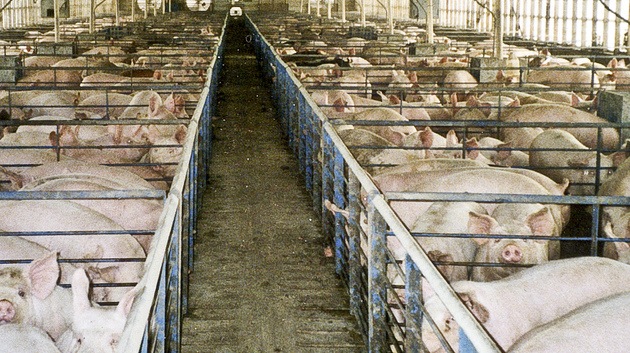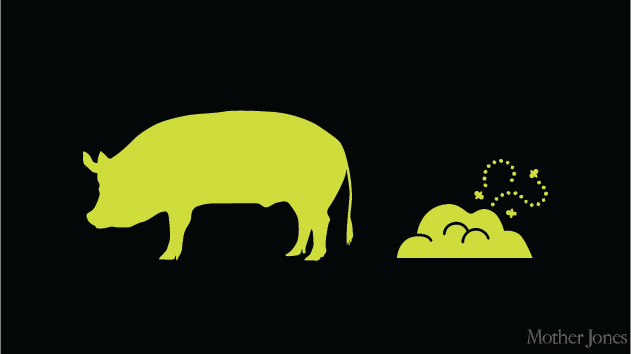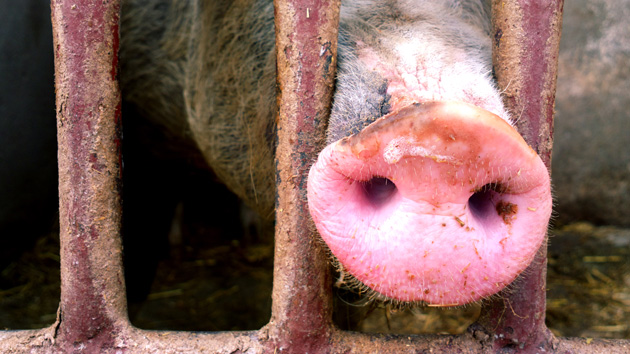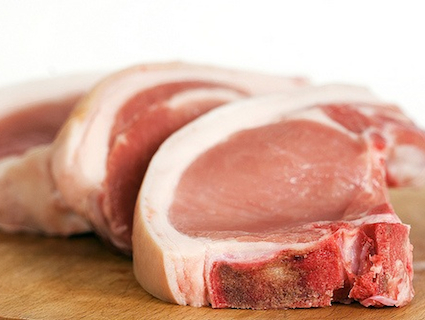As I showed recently, the United States is emerging as the world’s hog farm—the country where massive foreign meat companies like Brazil’s JBS and China’s WH Group (formerly Shuanghui) alight when they want to take advantage of rising global demand for pork. (If JBS’s recent deal to buy Cargill’s US hog operations goes through, JBS and WH Group together will slaughter 45 percent of hogs grown in the United States.)
A recent piece by Lily Kuo in Quartz (companion video above) documents what our status as the world’s source of cheap pork means for the people who live in industrial-hog country. It focuses on Duplin County in eastern North Carolina, which houses “about 530 hog operations with capacity for over 2 million pigs ….one of the highest concentrations of large, tightly-controlled indoor hog operations, also known as CAFOs (concentrated animal feeding operations) in the world.” In Duplin, “hogs outnumber humans almost 32 to 1,” Kuo reports. And that means living amid lots and lots of pig shit—the county’s hog facilities generate twice the annual waste of the entire population of New York City.
As I’ve shown before, the hog industry doesn’t build wealth in the communities where it operates—the opposite, in fact. “Almost a quarter of the population lives below the poverty line, making Duplin County one of the poorest counties in North Carolina,” Kuo writes. “It is also disproportionately black and Hispanic compared to the rest of the state.”

















